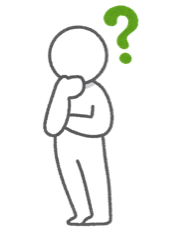What is ‘Reality’ Anyways? By Rebecca
Clippard
In this final blog post I will
contemplate a different side of the reality question. Previously I opened up
with a discussion on perception and senses pertaining to our understanding of
reality. While this first post is called ‘The Real Question’ this third post is
more about defining reality than explaining it.
In the second post, I compared ‘real’ with what we consider virtual. Now
I get down to the really argumentative topic. What is real and what do we mean
when we say reality? For the sake of discussion I previously stated that the
real world was the surroundings, information, and sensations that can be
corroborated. But that is just one definition of reality, and a fallible one.
Perception and bias of memories and facts means that there are few things
corroborated by everyone. Ten different people will give ten different
definition or philosophies on what reality means to them.
One take on reality is to pretend that
the world does not exist, but only our consciousness does. This is known as
idealism and concludes that there is no external world. The basic argument is
that we never can be 100% that anything in the outside world really exists. so the only real things are
mental and not physical. This is based on the idea that the physical parts of
the world are not known to exist but are only perceived. This is the opposite
of materialism which argues that only physical things can be proven to exist.
There are ways to refute both of these arguments. For example, idealism can be
said to contradict the law of identity which states that ‘each thing is the
same with itself and different than another.’ Idealism assumes that the
consciousness creates reality out of nothing. But with the law of identity
nothing is nothing and cannot be anything else. It would be like saying in math
that B cannot really equal B even though both terms are identical. As for
materialism, a physicist could argue that matter is not really made of anything
but atoms and empty space and is not the end point for reality. These are not the
only two philosophies attempting to define reality but they are the most known.
Despite different theories, how do we
really know this is the ‘real’ world? The answer is that you cannot know.
Senses are so easily misled, can we humans ever really know? Humans and
philosophers cannot agree on an exact definition of reality, making this topic
even more vague. This does give evidence that we cannot know for sure that the
real world is the only world. Or that we exist at all. But is there any other
way to function? If you accept that this world is not real and that, therefore,
nothing really matters, all motivation is lost. The solution is then to accept
that humans cannot know everything and to move on.
An
intriguing ted talk on why it’s alright to be wrong, which I found relevant
when contemplating different definitions for reality.
Helpful
definitions of Idealism and Materialism
Previous
blogposts:





The reality of western culture is definitely tied up in materialism. It would seem that we're addicted to it. Anything that's 'real' for us must have some manifestation in the physical world. This is in contrast to ancient cultures, like Amazonian cultures, which base their reality on personal experience. One is based on capitalizing on scientific advancement and one is based on more mystical ideas of being at one with world spirits. Our western reality has succeeded in sending our species on a path toward destruction, while the more archaic civilizations live a life of harmony with the Earth. So, it seems like these strict ideas of reality are more of an intellectual rabbit hole which we must climb out of in order to save our planet. Like you said, we can't really know that we know anything; yet we need science in combination with radical cultural change to reverse our parasitic relationship with the planet. The true reality of the universe is probably much more grand and beautiful than we could ever imagine. Who knows?
ReplyDeleteInteresting topic! Mine is quite similar.
Great cartoons! I'll be using Marx & Descartes (even though it doesn't quite get the latter right) to complement Berkeley & Johnson.
ReplyDeleteThis may not be The Real World but it's definitely a real one, unless we're prepared to devalue our own experience. Plenty of philosophers (and non-philosophers) have been. Calvin usually isn't. He should stop worrying about the puddle.
I think we can know that we know things. We can't know that we'll know the same things tomorrow, though it's a safe bet that our successors will know some things that we think aren't so (and vice versa). Knowledge grows, and shrinks, and changes. Otherwise what's the point of living? Knowing AND being, right Bryce?